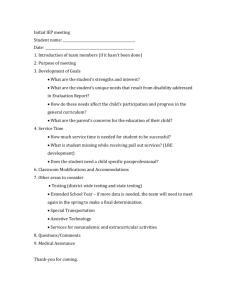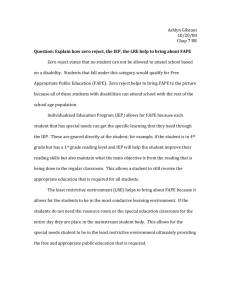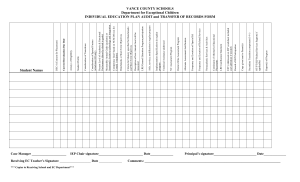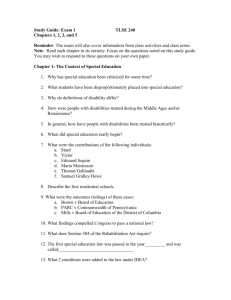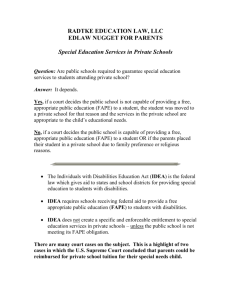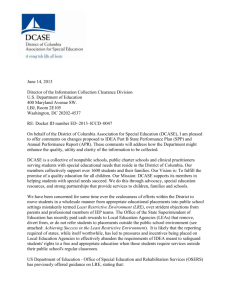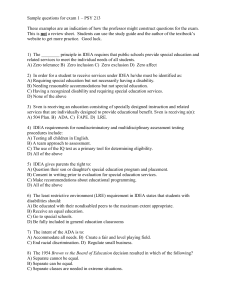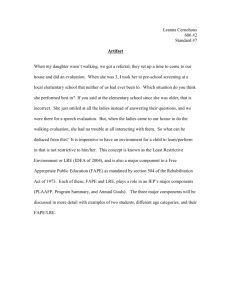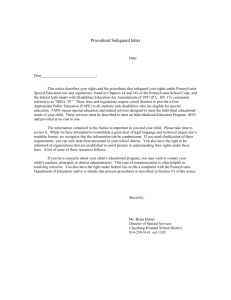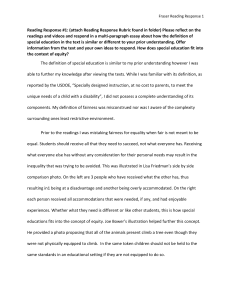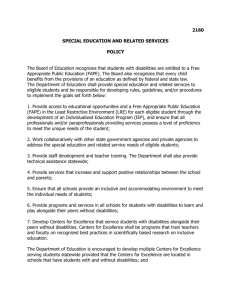LRE Core Messages
advertisement
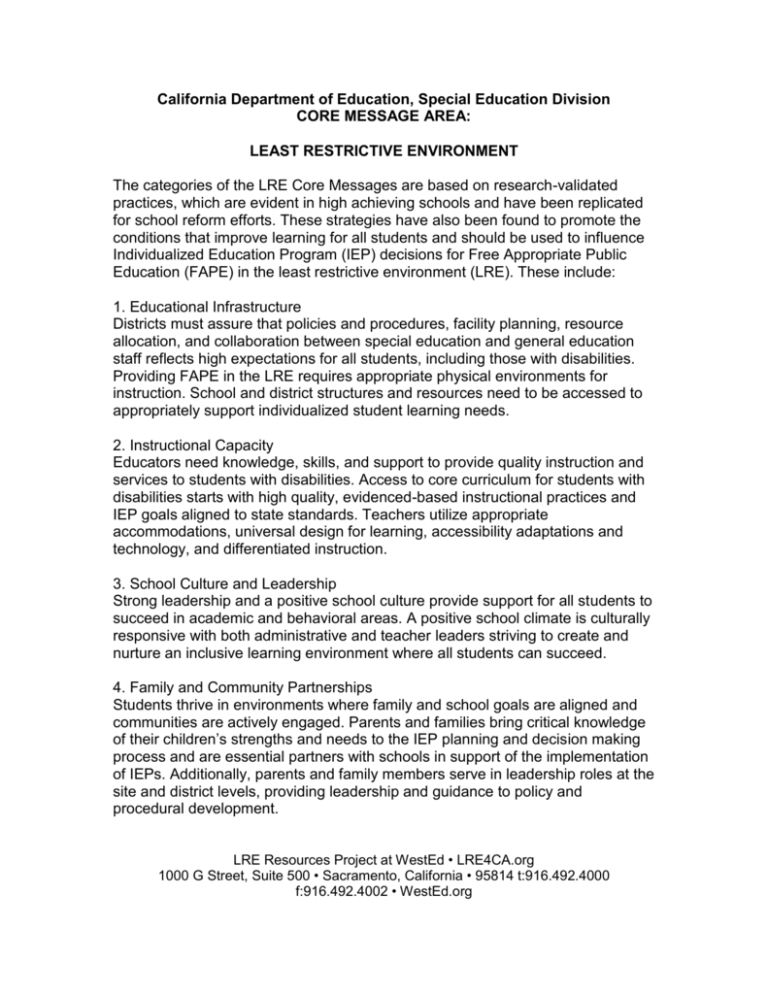
California Department of Education, Special Education Division CORE MESSAGE AREA: LEAST RESTRICTIVE ENVIRONMENT The categories of the LRE Core Messages are based on research-validated practices, which are evident in high achieving schools and have been replicated for school reform efforts. These strategies have also been found to promote the conditions that improve learning for all students and should be used to influence Individualized Education Program (IEP) decisions for Free Appropriate Public Education (FAPE) in the least restrictive environment (LRE). These include: 1. Educational Infrastructure Districts must assure that policies and procedures, facility planning, resource allocation, and collaboration between special education and general education staff reflects high expectations for all students, including those with disabilities. Providing FAPE in the LRE requires appropriate physical environments for instruction. School and district structures and resources need to be accessed to appropriately support individualized student learning needs. 2. Instructional Capacity Educators need knowledge, skills, and support to provide quality instruction and services to students with disabilities. Access to core curriculum for students with disabilities starts with high quality, evidenced-based instructional practices and IEP goals aligned to state standards. Teachers utilize appropriate accommodations, universal design for learning, accessibility adaptations and technology, and differentiated instruction. 3. School Culture and Leadership Strong leadership and a positive school culture provide support for all students to succeed in academic and behavioral areas. A positive school climate is culturally responsive with both administrative and teacher leaders striving to create and nurture an inclusive learning environment where all students can succeed. 4. Family and Community Partnerships Students thrive in environments where family and school goals are aligned and communities are actively engaged. Parents and families bring critical knowledge of their children’s strengths and needs to the IEP planning and decision making process and are essential partners with schools in support of the implementation of IEPs. Additionally, parents and family members serve in leadership roles at the site and district levels, providing leadership and guidance to policy and procedural development. LRE Resources Project at WestEd • LRE4CA.org 1000 G Street, Suite 500 • Sacramento, California • 95814 t:916.492.4000 f:916.492.4002 • WestEd.org

